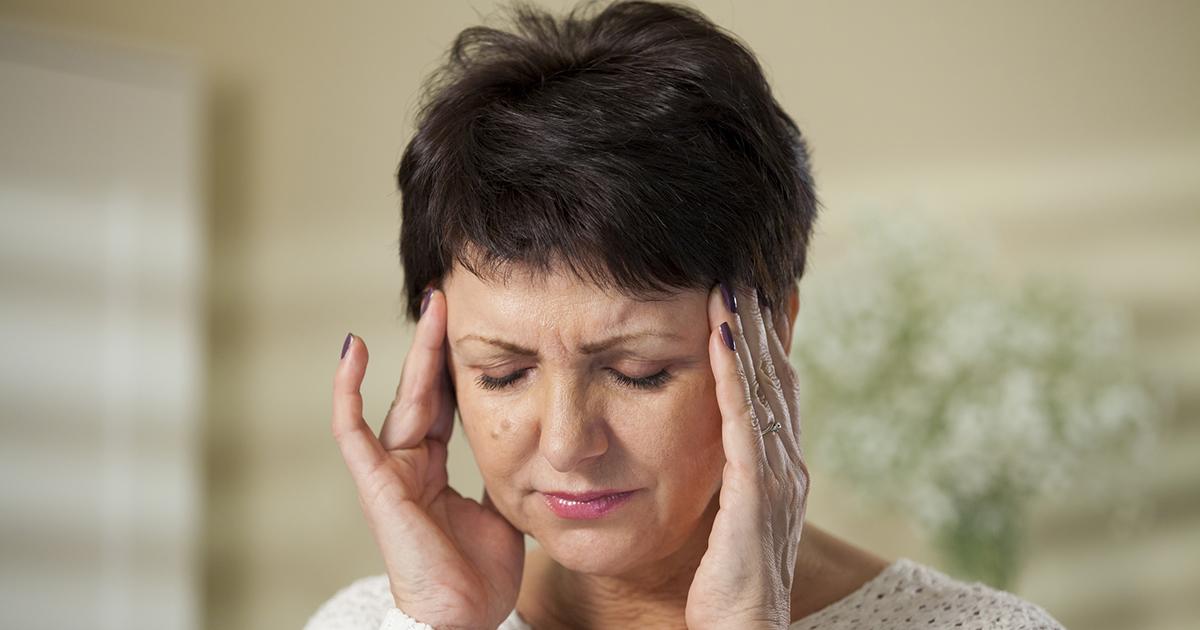Side Effects Of Sleeping Pills
Sleeping pills are often prescribed to help when disruptions, travel, and stress interfere with an individual's sleep. They may also be prescribed for chronic insomnia. However, it's typically recommended for those with chronic insomnia to also seek behavioral therapy and employ behavioral changes, as these tend to be more effective than a sleeping pill alone. Other treatments for insomnia vary depending on the underlying cause. Insomnia is generally a symptom, not a disease by itself. Treating the symptom with sleeping pills is just one portion of solving it. Sleeping pills can be vital in helping you rest, though. Every prescription sleeping pill on the market has risks, particularly for those with kidney disease, liver disease, and other medical conditions. Thus, patients should always discuss new treatments with their doctor.
Daytime Drowsiness

One of the most common side effects of sleeping pills is daytime drowsiness. This typically happens when the effects of the drug have not worn off by the time the individual who took it wakes up. Sleeping medications are hypnotics that induce the urge to sleep, and if the medicine is still in the patient's system when they wake up, they'll be tired. The best way to minimize the risk of drowsiness is to take the dosage at the correct time.
Most sleeping pills are meant to be taken immediately before bed. These fast-acting sleeping medications are powerful so patients should only use them for a full night of sleep, which means they should have a solid seven to eight hours before they need to wake up. However, some patients don't take the medication before bed, and instead, they toss and turn for a few hours, then take a pill as a last resort in the middle of the night. Then, the medication is still at full strength when they wake up, which can cause them to oversleep, miss their alarms, or be extremely groggy.
Issues With Attention Or Memory

Many individuals experience issues with attention or memory the day after they take a sleeping pill. These cognitive effects may be worse if they haven't gotten a full eight hours of sleep. In addition, some sleeping pills can cause patients to sleepwalk or develop amnesia about nighttime events. There have even been situations where patients drove their vehicles while still asleep. Memory can be impaired by sleep deprivation as well. If patients are not getting enough sleep regularly, they are more likely to have issues with concentration and focus whether or not they take a sleeping pill.
Taking a sleeping pill too late in the night can cause the same daytime effects they get with sleep deprivation. In addition to drowsiness, these include impaired concentration and short-term memory. Depending on the circumstances, patients may also find their long-term memory is impacted. Issues concentrating aren't necessarily a reason to stop taking the drug, though episodes of amnesia and engaging in behaviors while still asleep are. Even one episode of amnesia is enough to make stopping the drug a good idea.
Unusual Dreams

Unusual dreams are a common side effect of sleeping pills. Everyone dreams when they enter REM sleep, but everyone who wakes up from 'dreamless' sleep typically just does not remember the dreams. Sleeping pills can affect dreams in a few different ways. First, dreams might become more vivid, and individuals may remember significantly more details upon waking. Second, dreams might become unusual, unnerving, or potentially even frightening. In most cases, unusual dreams are not cause for concern. However, if they develop into nightmares that cause significant distress, patients may need to stop using their sleeping pill or switch to a different medication.
Many individuals believe REM sleep is the only point at which they dream, but this isn't true. While REM sleep produces the most vivid dreams, individuals can have dreams during any sleep stage. According to researchers, the average person has four to six dreams during an eight-hour session of sleep. Research also shows dreaming and REM sleep are vital to physical and mental health.
Appetite Changes

Some individuals notice their appetite changes when they take sleeping pills. The reason for these changes hasn't been well-studied, and there may be several different causes of appetite shifts related to sleeping pills. One factor is sleeping pills can cause nausea and fatigue. When fatigued, patients are less likely to experience regular sensations of hunger. They may eat too much because they are trying to give their body energy, or too little because they do not realize they are hungry.
Nausea and feelings of unwellness can cause individuals to avoid food for fear of exacerbating the condition. In addition, nausea can suppress feelings of hunger. Some patients who take sleeping pills report they eat too much. One of the most well-known effects is sleep eating, in which individuals put together and eat meals while completely asleep. This can be cause for concern, especially if the meal preparation involves using knives or turning on the stove.
Tingling In The Extremities

Patients taking sleeping pills might feel tingling in their extremities or a burning sensation. Zolpidem is the medication in sleeping pills that most commonly causes tingling or burning in the feet, hands, legs, or arms. Tingling in the hands or feet is medically known as paresthesia of the fingers or toes. When it isn't caused by a medication, the tingling might be related to peripheral neuropathy or other nerve disorders. Peripheral neuropathy is nerve damage that most commonly manifests in the feet of diabetes patients.
Other conditions that can cause burning, numbness, and tingling in the hands are vascular diseases, Raynaud's disease, multiple sclerosis, and stroke. If discontinuing the sleeping medication doesn't make the tingling sensations stop, patients should talk to their doctor to rule out a more serious underlying cause.
Dry Mouth

Patients who use sleeping pills might experience dry mouth. Some doctors prescribe antidepressants like amitriptyline, mirtazapine, and trazodone for patients with insomnia, and these medications are most likely to cause dry mouth. When dry mouth occurs, the patient's mouth doesn't produce enough saliva, and there may be a feeling of stickiness in the mouth. Bad breath, difficulty chewing and swallowing, sore throat, and changes in taste could occur.
Patients who have dry mouth for a prolonged period may be at an increased risk of tooth decay. To treat dry mouth, patients can use over-the-counter or prescription mouthwashes or artificial saliva to lubricate the mouth. Switching to a different type of sleeping pill could alleviate this side effect.
Heartburn Or Indigestion

Sleeping pills may cause heartburn or indigestion, and benzodiazepines are most likely to trigger these symptoms. Most patients take sleeping aids shortly before bedtime, and the pills increase the patient's exposure to stomach acid during the overnight hours. When stomach acid is increased, the cells lining the esophagus could be damaged. Studies have shown sleeping pills worsen acid reflux and cause the patient to experience more heartburn and indigestion at night. Patients who take these medications should speak with their physician about trying non-drug approaches to improve sleep. If sleeping pills are necessary, they should be used at the lowest effective dose, preferably for a short time.
Patients who have heartburn while on sleeping pills may need to make lifestyle adjustments to reduce the severity of this side effect. Experts recommend eating meals at least two or three hours before bedtime, and it is helpful to eat smaller, more frequent meals throughout the day. Foods that are high in fat or spicy could trigger heartburn, and patients may also want to avoid onions, tomatoes, citrus fruits, chocolate, peppermint, and caffeine. If heartburn occurs regularly, the patient should have an assessment to determine the underlying cause of the issue.
Headache

Headaches are a common side effect of sleeping pills, and some patients may find they frequently experience morning headaches while taking these medicines. Headaches may occur in conjunction with grogginess or mental fog, and the pain could occur on one or both sides of the head. For patients taking zolpidem, headaches seem to be especially common in cases where the medicine has been used for less than thirty days, and taking zolpidem with alprazolam increases the risk of developing a headache. Female patients who are sixty years old or older have a greater likelihood of headaches than other patients.
To ease headache pain, patients may want to try placing a hot or cool cloth on the forehead, and it can help to lie down in a dark room. Meditation and other stress-relieving activities could be beneficial, and some experts suggest inhaling the scent of lavender. Over-the-counter pain relievers are typically effective in relieving headache pain, and patients should ask their healthcare provider if it is safe for them to use these while on sleeping pills. If headaches occur with nausea, vomiting, blurred vision, fever, or confusion, the patient should be urgently evaluated in the emergency room.
Stomach Pain

Stomach pain may develop with some types of sleeping pills, though it is generally considered a rare side effect. Patients have reported bloating during treatment with sleeping pills, and intense abdominal pain has occurred. Female patients over sixty years old may have a higher risk of experiencing stomach pain with sleeping pills, and taking sleeping pills with furosemide may elevate this risk. Stomach pain may make it difficult to eat, work, and sleep, and it could cause significant disruption in the patient's life. Patients who experience stomach pain may wish to keep a symptom journal that records the date, time, and duration of each episode of pain, any possible triggers for the pain (such as stress or food), and whether anything reduces the pain.
Since stomach pain can have a variety of causes, the patient should see their primary care doctor for an examination if this symptom persists for more than forty-eight hours. It is especially important to see a healthcare provider if stomach pain is accompanied by bloating that lasts more than two days or if it occurs along with fever, painful urination, or unexplained weight loss.
Constipation Or Diarrhea

Gastrointestinal issues such as constipation or diarrhea are frequently reported side effects of sleeping pills. Patients who use antidepressants as sleep aids are more likely to experience constipation, and diarrhea tends to occur with other types of sleeping pills. Constipation involves hard stools, and most doctors consider a patient constipated if they have not had a bowel movement in at least two or three days.
To ease constipation, patients may want to try increasing their dietary fiber, and over-the-counter laxatives might be necessary for symptom relief. In severe cases, patients may need to have an enema. Diarrhea develops when the patient has loose or watery stools more than three times in twenty-four hours. Diarrhea may be eased with a low-fiber diet, and over-the-counter medications like loperamide can help as well. Patients who have constipation or diarrhea regularly while taking sleeping pills should let their healthcare provider know. Changing to a different medication could reduce or eliminate this side effect.
